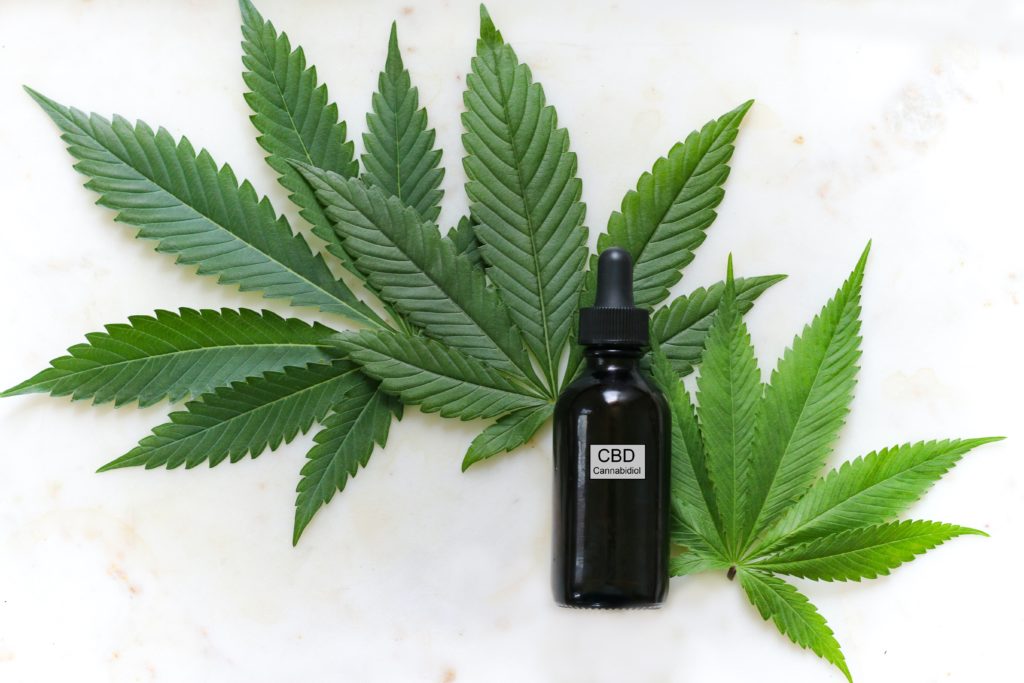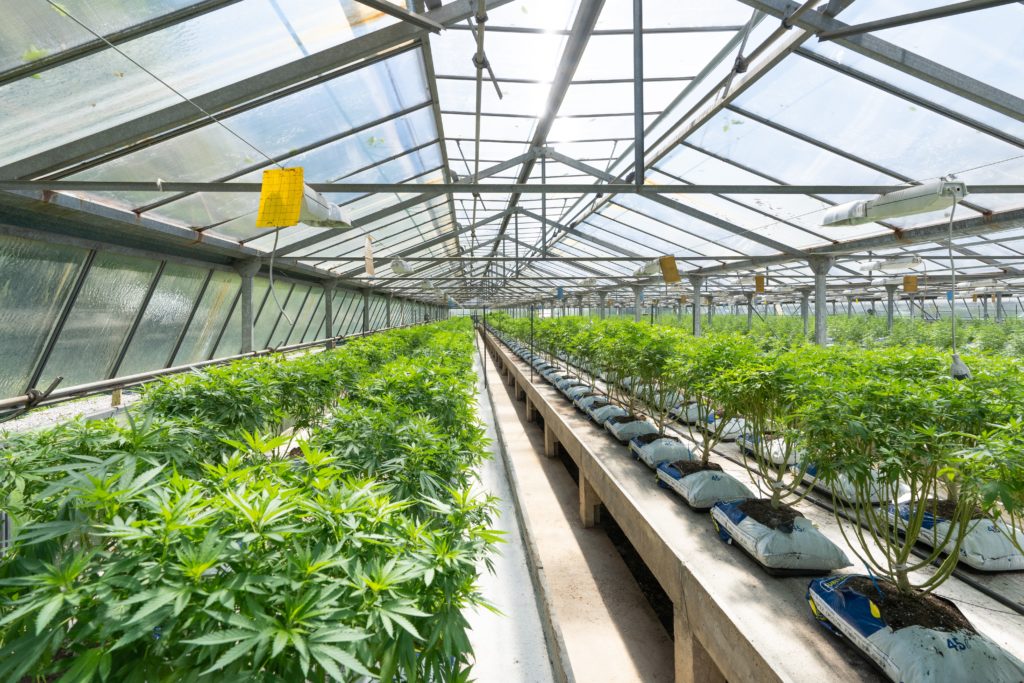Cannabidiol (CBD): What Does the Latest Research Suggest?

Cannabis is big business. I am often amazed that you can buy cannabis-type products at the hardware store, grocery store, gas station and other outlets here in California. I have seen advertisements promoting cannabis for treating pretty much everything, from depression to autoimmune conditions, well beyond what the latest research would support. If you mention to someone that you have arthritis, it wouldn’t be surprising if they suggest their favorite cannabis gummy to relieve your symptoms.
The regulatory climate for cannabis is also quite confusing since over-the-counter cannabis products are illegal per Food and Drug Association regulations. In contrast, the U.S. Farm Bill from 2018 explicitly carved out an exception for hemp-derived products. Hemp products are a type of cannabis that is high in cannabidiol (CBD), but not the psychoactive tetrahydrocannabinol (THC). This, combined with an assortment of state laws that differ from federal regulations has made the whole regulatory framework for cannabis quite confusing.
Per a discussion I had with the FDA directly, no cannabis product, including CBD, can legally cross state lines. According to their interpretation of the current law, all cannabis products have to be grown, processed and sold in the same state. Honestly, I doubt that is true for the majority of cannabis products, however FDA enforcement so far seems to be somewhat lax. In the near future, things could easily change. But for now, CBD containing products are available to most average consumers.
What is Cannabidiol?
Cannabidiol or CBD is generally considered a non-addictive, non-intoxicating cannabinoid. Cannabinoids are chemicals that interact with THC receptors in the body. These are the same receptors that give cannabis some of it’s psychoactive effects—the high associated with recreational cannabis use.
The effects of CBD are complex. CBD actually has low affinity for THC receptors and overall seems to block THC activity (Thomas 2007). Yet some studies have concluded that the main effects of CBD are derived from other mechanisms beyond effects on THC receptors directly (McPartland 2015). Research on CBD has shown effects on a dizzying array of targets in the body, including adenosine receptors, glycine receptors, opioid receptors, serotonin receptors, enzymes systems and others (Bih 2015).
Reviewing the latest research, benefits of cannabidiol (CBD) may include:
- Reduction in seizures
- Decreases in some types of pain and inflammatory conditions
- Mental health benefits
- Improved sleep
CBD and Seizure
The strongest research on CBD appears to indicate benefits for reducing seizures. A small recent study in treatment resistant seizures in children found an almost 82% reduction in seizure incidence over the course of four-weeks (Mitelpunkt 2019). A long-term study on treatment resistant seizures due to Lennox-Gastaut Syndrome or Dravet Syndrome also found clear evidence of benefit with CBD (Laux 2019). Seizures were reduced 44% on average at 12 weeks. Other studies have found benefits with CBD for seizures as well (Miller 2020, Thiele 2019).
The pharmaceutical industry even conducted clinical trials and won approval for Epidiolex, a prescription-based CBD, approved for treating Lennox-Gastaut and Dravet Syndrome type seizures.
CBD and Pain
The data on CBD for treating pain is mixed, but still suggests benefits for some conditions. A recent trial compared CBD to placebo for acute low back pain in the emergency room. The study used large doses—400 mg of CBD—but didn’t find any pain reduction (Bebee 2021). A study in osteoarthritis in dogs found dose-dependent reductions in pain with CBD. The higher the dose, the better the pain relief (Verrico 2020).
Peripheral neuropathy, nerve damage in the legs and feet, becomes more common as we age. In severe cases, peripheral neuropathy can be debilitating. A recent trial of topical CBD for peripheral neuropathy found reductions in pain and other adverse sensations with its use (Xu 2020).
A study on patients with chronic pain on opioid medication found significant benefits. More than half of patients were able to stop their prescription opioids after 8 weeks with CBD. Sleep and quality of life improved for participants as well (Capano 2020). Considering the side effects with opioids, more research is desperately needed to confirm CBD’s benefits in chronic pain.
Most other studies on pain used combination products that also included THC, the psychoactive component of cannabis. Many of these studies have also found benefits for pain (Wade 2003, Wade 2004, Johnson 2010).
CBD and Mental Health
Research on CBD and mental health is in its infancy, but initial data suggests some promise. However, cannabis that contains THC is well known to increase psychosis (Hindley 2020). In addition, other research has found concerning correlations with recreational cannabis use and cognitive dysfunction, behavioral problems, memory deficits, poor attention and detrimental changes in brain structure (Archie 2019). Using THC-containing cannabis for mental health conditions long term is likely detrimental, although more research is needed on effects of smoking cannabis versus other forms of delivery. I have typically recommended that patients with mental health conditions minimize or eliminate recreational cannabis use. However, CBD-only extracts might have some benefits.
CBD and Schizophrenia

A recent study showed that CBD was able to partially normalize brain function in patients at high risk of psychosis (Bhattacharayya 2018). Three clinical trials for schizophrenia have found somewhat mixed results. One trial, using 600 mg per day, found no benefits, while a separate trial, using 1000 mg per day, found improvements (Boggs 2018, McGuire 2018). An earlier trial using 800 mg of CBD compared to standard medication also found CBD reduced symptoms with far fewer side effects than standard medication (Leweke 2012).
CBD and Anxiety
Acute anxiety has been shown to be reduced with CBD in Parkinson’s disease and in patients with social anxiety (Martins de Faria 2020 Bergamaschi 2011). However, it’s worth noting that not all studies have found anxiety reducing effects with CBD (Arndt 2017). Doses in the published studies are often quite high. One study found 300 mg was needed to reduce public-speaking anxiety and that both lower and higher doses were ineffective (Linares 2019).
A small study on patients with post-traumatic stress disorder (PTSD) also found benefits, but is in need of replication. 10 of 11 patients with PTSD improved with CBD. It also helped relieve frequent nightmares, a common problem in PTSD patients (Elms 2019).
CBD and Insomnia
Insomnia is a common problem. And standard treatments have concerning side effects, up to and including increased risk of death (Kripke 2016). Safe and effective options for helping improve sleep are needed.
While data is still quite thin, CBD may help with insomnia. A review of cases using CBD for both anxiety and insomnia found that anxiety improved for almost 80% in the first month and sleep improved for two-thirds (Shannon 2019). However, insomnia benefits were somewhat variable over time. An older study out of Brazil also found short-term improved sleep with doses of CBD (Carlini 1981).
Conclusions
There is a lot of hype around CBD and other cannabis-based products for different health conditions. While clearly more research is needed, studies are showing some benefits for specific conditions. From the data so far, CBD appears promising as a treatment for seizures. In addition, data suggests CBD may have some benefits for certain types of pain, mental health conditions and insomnia. More research is needed to help flesh out the clinical efficacy and utility of CBD as an alternative treatment. Due to the concerns of long-term problems from recreational cannabis, we also need long-term studies on CBD to fully establish safety.



